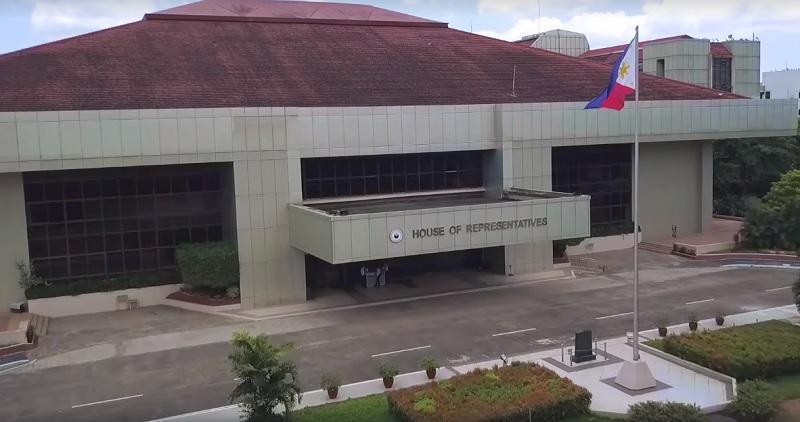LTMS mess sparks call for contract cancellation
Issues concerning the Land Transportation Management System (LTMS) have been brought to the attention of several lawmakers. At the House Committee on Transportation’s meeting to address various issues of the Department of Transportation (DOTr) and Land Transportation Office (LTO), SAGIP party-list Representative Rodante Marcoleta, citing the latest Audit Observation Memorandum (AOM) of the Commission on […]


Issues concerning the Land Transportation Management System (LTMS) have been brought to the attention of several lawmakers.
At the House Committee on Transportation’s meeting to address various issues of the Department of Transportation (DOTr) and Land Transportation Office (LTO), SAGIP party-list Representative Rodante Marcoleta, citing the latest Audit Observation Memorandum (AOM) of the Commission on Audit (COA), revealed that the actual delivery period of milestones under the LTMS project from German information technology contractor Dermalog exceeded the allowable time extension, which was not compliant with the Government Procurement Manual Volume 2.
The COA reported that Milestones 1 and 3 of the LTMS were delayed from 165 to 756 days, respectively, despite multiple deadline extensions.
Marcoleta said that based on the LTMS contract, the LTO is authorized to charge an applicable rate of liquidated damages from the contract price if the delivery of goods and services is delayed, and once the maximum is reached, the LTO may terminate the contract.
During the meeting, Marcoleta informed LTO chief Assistant Secretary Vigor Mendoza II that, based on his estimates, the total liquidated damages cost is currently worth P3.19 billion, exceeding the maximum allowable amount.
Marcoleta said the LTO can “legally rescind” the LTMS contract.
The P3.14-billion LTMS project is Component A of the P8.2 billion DOTr Road IT Infrastructure Project, and was awarded to the Joint Venture Agreement (JVA) of German technology firm, Dermalog and local partners: Holy Family Printing Corp., Microgenesis, and Verzontal Builders, Inc. in May 2018.
The P2.6-billion Component B refers to the procurement of hardware, software, and services relative to LTO’s automation.
Marcoleta, however, questioned the legality of splitting the project into two components, pointing out that no documents show that it was approved by the National Economic and Development Authority-Investment Coordination Committee (NEDA-ICC).
He argued that this was “gross” negligence on the part of LTO, a clear violation of Section 65 of the Government Procurement Reform Act (Republic Act 9184) and considered technical malversation under Article 220 of the Revised Penal Code.
Marcoleta added that the 13 extension orders and three amendments to the payment schedule of the LTO in favor of Dermalog also violated procurement and anti-graft laws.
Sta. Rosa City Representative Dan Fernandez criticized Dermalog representatives for repeatedly “lying” after claiming the LTMS is 100% functional and the LTO has full access to the system.
Mendoza also said the LTO identified 130 issues that prevent the LTMS from being fully functional.
One example is LTMS’ supposed failure to provide an accurate computation of the Motor Vehicle User’s Charge (MVUC), which can wrongly charge the transacting public or affect the government’s tax collection.
Further, the LTMS is not connected with other government agencies.
Mendoza added that the LTO does not have full system access to the LTMS, so it could not make any alterations to the system without Dermalog’s assistance.
By having full system access, some changes in the system can be performed by the Department of Information and Communications Technology (DICT), which could help the agency swiftly respond to the needs of the transacting public without incurring additional costs.
Currently, LTO’s change order requests to Dermalog already amount to P620 million.
Meanwhile, Stradcom Corporation president and CEO Anthony Quiambao told the committee that the company has already submitted its database to the LTO 10 times.
Quiambao also slammed Dermalog’s accusations that Stradcom’s failure to submit the database affected the functionalities of the LTMS, urging its officials to apologize to Stradcom for previously misusing its company name as reasons for Dermalog’s delays.
Last October, Mendoza said the LTO was seeking full government control of the LTMS, saying their IT experts were capable of operating and maintaining the system.
“In fact, they are the ones who are really working to fix the system to make it more comfortable for end-users, and eventually make the online platform fully utilized,” the LTO chief said at the time.
House Committee on Transportation chairperson and Antipolo City 2nd District Representative Romeo Acop ordered the LTO, DICT, and Dermalog to meet and resolve the LTMS’s pending issues within two weeks.
“We recognize the data belongs to the LTO, but under our contract, it is not until the system is completely turned over to the LTO that the database will be completely turned over. This is because it is part of the system that will be turned over after the maintenance period has been completed,” Dermalog said in a statement.
“The data, of course, is the data of the Philippine people, and the system, LTMS, is owned by the Philippine government. It cannot be turned over because it is already with the LTO. What you are talking about is the source code. As long as we have to and love to maintain the system, it should be in one hand. It should not be taken by different people,” Dermalog added.
The committee said it will resume its hearing on the LTMS issue in the first week of March, as it plans to invite the German owners of Dermalog to answer the allegations involving their terminated projects in other countries, such as Indonesia. —VBL, GMA Integrated News














